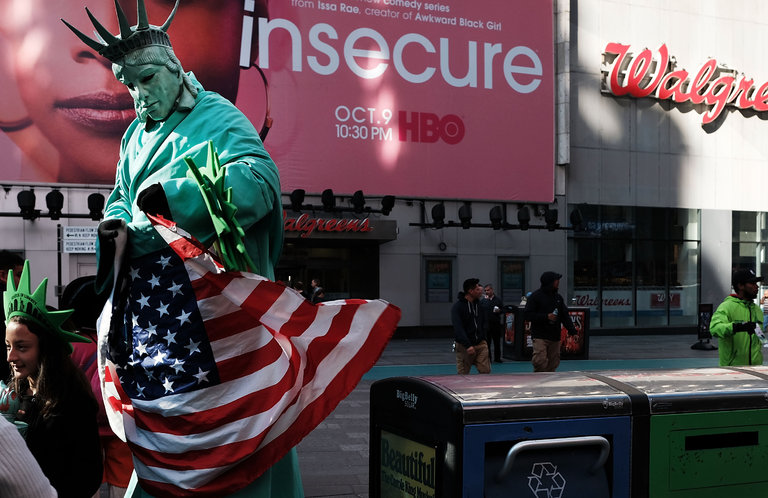LONDON — During these last days of the seemingly endless election campaign, we are all living with enormous and ever-rising levels of anxiety. The days pass in a fever of worry, with waves of nausea that subside only to return and rob us of our breath. Many people are having difficulty sleeping. Many others wake up in fright, their bodies drenched with the sweat of Trump terrors. What will America look like after Tuesday? What will the world look like?
We track the news cycle obsessively, compulsively, trying to find clues that might allow us to know what we cannot know and will not know until Wednesday. We may not know even then. Will Trump accept defeat? What if the election is contested for weeks, months? What if there is civil disorder, with blood in the streets? The waiting is agony.
We constantly press the refresh button on The Upshot or whatever lifeline we are clinging to. Foreigners like me try to figure out the possible meaning of those endless sports analogies about field goals. We stare at the screen, look away out of the window and try and focus on something else, and then stare back at the screen again. We pick up handfuls of factoids from the chaos of data that assails us, clutching at the tiny shards of hope glitter on the surface of our media bubble. But then we reject them as hopeless and think to ourselves: “He can’t really win, can he?” Can he?
The mood of nausea at the world, a disgust at the entirety of existence, is familiar to those of us who cut our teeth reading existentialist fiction. Novels like Sartre’s 1938 “Nausea” captured a feeling of disgust with the world and disgust with ourselves for going along with a world so seemingly blissfully happy with itself for so long. For Sartre, the dreadful had already happened, with the rise of National Socialism in the early 1930s, and it was a question of learning to face up to our fate. This is the mood that I want to bring into focus by exploring the concept of Brexistentialism.
For I must admit that I’ve become a Brexistentialist of late, thinking back to that evening on June 23 when I watched the entirety — eight hours or more — of the BBC’s live coverage of the referendum on whether Britain would leave the European Union or choose to remain.
(…)


